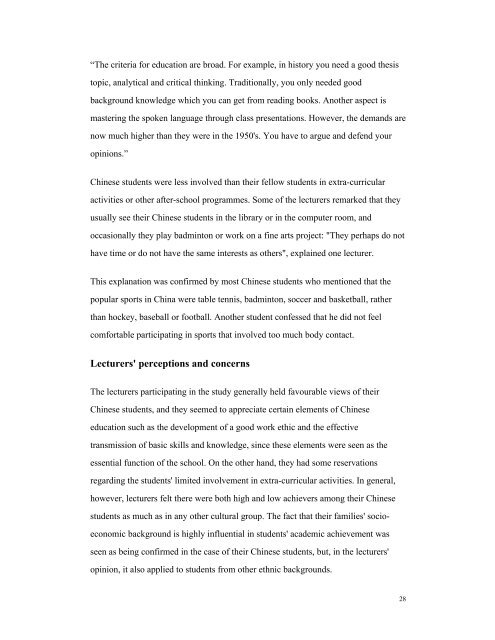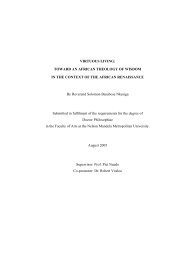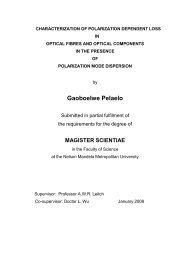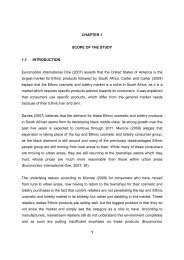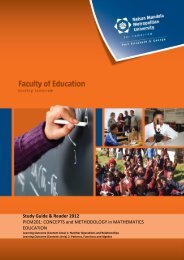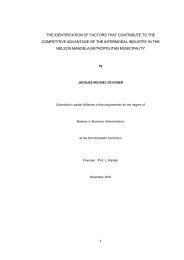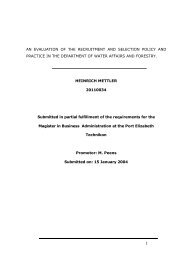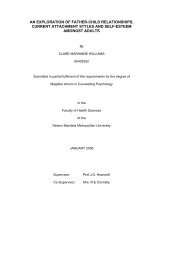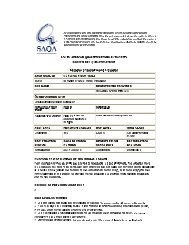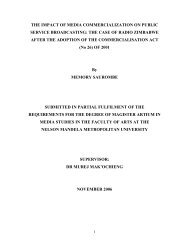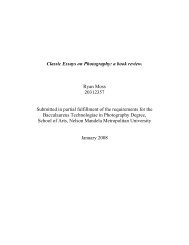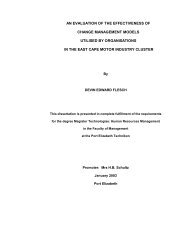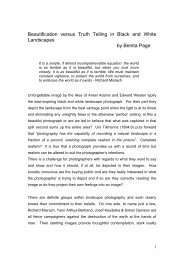CULTURE SHOCK - Nelson Mandela Metropolitan University
CULTURE SHOCK - Nelson Mandela Metropolitan University
CULTURE SHOCK - Nelson Mandela Metropolitan University
You also want an ePaper? Increase the reach of your titles
YUMPU automatically turns print PDFs into web optimized ePapers that Google loves.
“The criteria for education are broad. For example, in history you need a good thesistopic, analytical and critical thinking. Traditionally, you only needed goodbackground knowledge which you can get from reading books. Another aspect ismastering the spoken language through class presentations. However, the demands arenow much higher than they were in the 1950's. You have to argue and defend youropinions.”Chinese students were less involved than their fellow students in extra-curricularactivities or other after-school programmes. Some of the lecturers remarked that theyusually see their Chinese students in the library or in the computer room, andoccasionally they play badminton or work on a fine arts project: "They perhaps do nothave time or do not have the same interests as others", explained one lecturer.This explanation was confirmed by most Chinese students who mentioned that thepopular sports in China were table tennis, badminton, soccer and basketball, ratherthan hockey, baseball or football. Another student confessed that he did not feelcomfortable participating in sports that involved too much body contact.Lecturers' perceptions and concernsThe lecturers participating in the study generally held favourable views of theirChinese students, and they seemed to appreciate certain elements of Chineseeducation such as the development of a good work ethic and the effectivetransmission of basic skills and knowledge, since these elements were seen as theessential function of the school. On the other hand, they had some reservationsregarding the students' limited involvement in extra-curricular activities. In general,however, lecturers felt there were both high and low achievers among their Chinesestudents as much as in any other cultural group. The fact that their families' socioeconomicbackground is highly influential in students' academic achievement wasseen as being confirmed in the case of their Chinese students, but, in the lecturers'opinion, it also applied to students from other ethnic backgrounds.28


